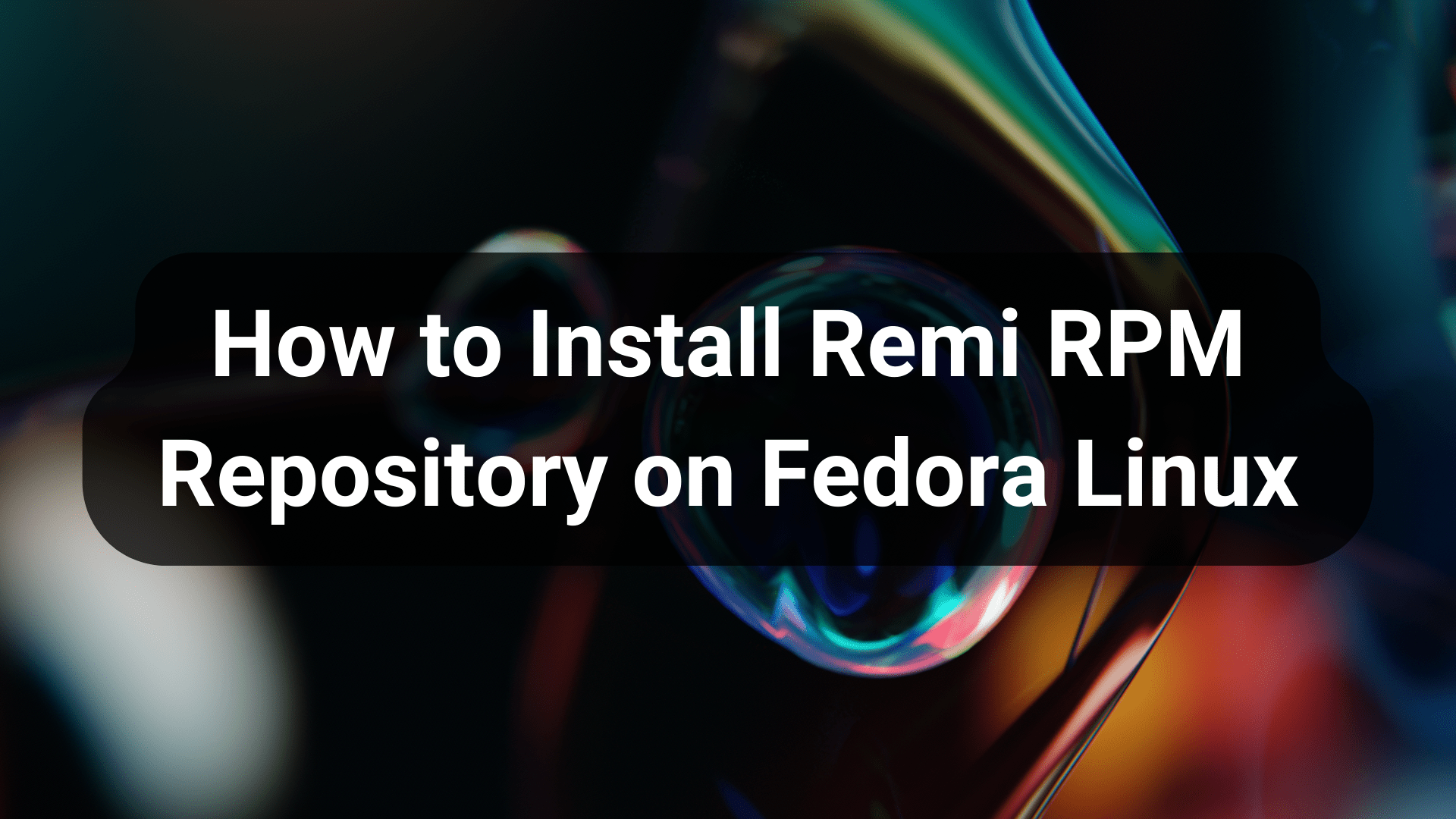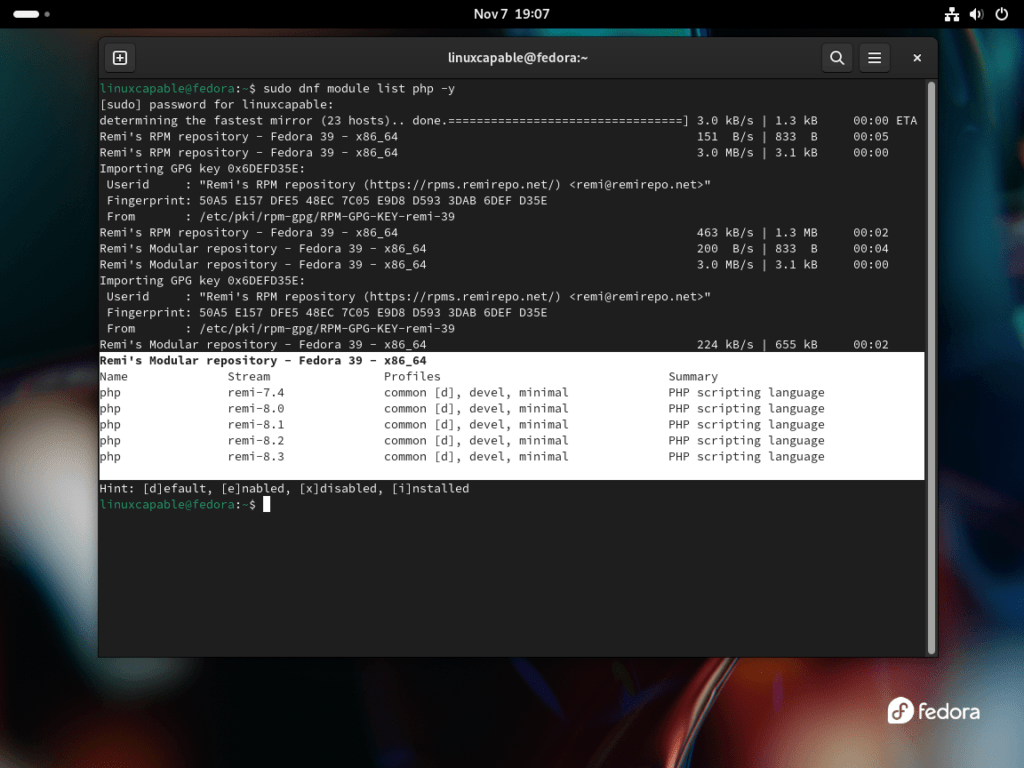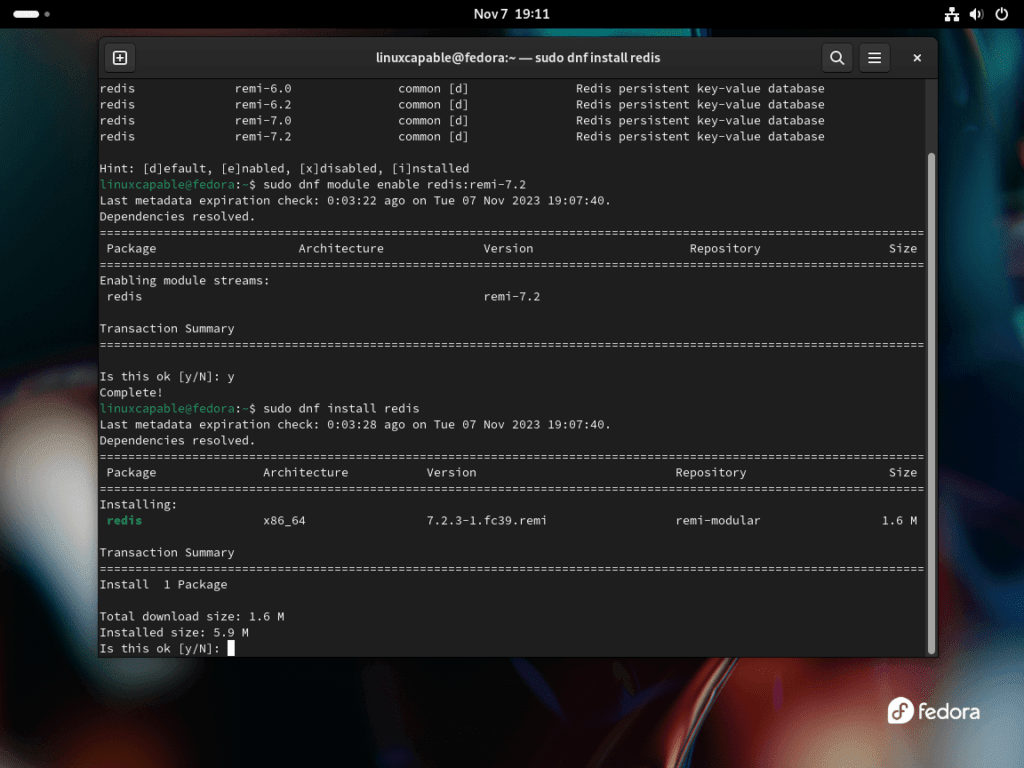The Remi repository, maintained by Remi Collect, is a crucial resource for Fedora and Enterprise Linux users. It aims to provide the latest PHP stack versions and other comprehensive software packages. The repository’s continuous updates ensure users have access to the latest software, aligning with current upstream releases. Here, we outline the features of the Remi repository to understand what we’re installing.
Key Features of the Remi Repository:
- Latest Software Versions: Offers the most recent versions of PHP and other software packages.
- Extensive RPM Packages: Hosts several thousand RPM packages, meeting various software needs.
- Multiple Versions Installation: Enables installation of multiple software versions on one system, ideal for compatibility and testing scenarios.
- Compatibility with Major Linux Distributions: Supports a broad range of Enterprise Linux distributions, including Fedora, RHEL, CentOS, Oracle, AlmaLinux, and Rocky Linux.
The Remi repository is an indispensable tool for those requiring cutting-edge software on Fedora or Enterprise Linux platforms, especially for advanced PHP features and versions. Understanding its value, we are now prepared to guide you through the process to install the Remi RPM Repo on Fedora Linux, focusing on using the command-line terminal for installation. Let’s get started.
Import Remi RPM on Fedora Linux
Step 1: Update Fedora Packages Before Remi RPM Import
Before incorporating the Remi repository into your Fedora system, it’s critical to start with an update to all your existing packages. This proactive measure ensures that your system is up-to-date, reducing the likelihood of any installation conflicts.
Run the following command to refresh your system packages:
sudo dnf upgrade --refreshStep 2: Import Remi Repository on Fedora Linux
Integrating the Remi repository into your Fedora Linux system is more straightforward than Red Hat Enterprise Linux (RHEL) and its derivatives. Unlike those systems, Fedora does not require the installation of the Extra Packages for Enterprise Linux (EPEL) beforehand.
It’s essential to choose the repository version that corresponds with your specific version of Fedora to avoid compatibility issues.
sudo dnf install http://rpms.remirepo.net/fedora/remi-release-39.rpm -ysudo dnf install http://rpms.remirepo.net/fedora/remi-release-38.rpm -ysudo dnf install http://rpms.remirepo.net/fedora/remi-release-37.rpm -yVerify that the commands are compatible with the current version of Fedora you are using, as the repository links must match your Fedora version. If there is a discrepancy or a new version of Fedora has been released, the repository URLs provided may need to be updated accordingly.
Enable PHP Remi RPM on Fedora Linux
Step 1: Identify Supported PHP Versions
Upon adding the Remi repository to your Fedora system, a broader spectrum of PHP versions becomes accessible. This expansion is particularly beneficial for developers needing to toggle among PHP versions for diverse projects.
To discern which PHP versions are available, use the command below. It will enumerate all the PHP modules you can install:
sudo dnf module list php -yThe above command leverages DNF’s module functionality to list all PHP versions available via the Remi repository.
Step 2: Enable Your Preferred PHP Version
Having reviewed the available PHP modules, it’s time to activate the PHP version that aligns with your project requirements. Execute one of the following commands to enable your chosen PHP version on Fedora:
sudo dnf module enable php:remi-7.4 -ysudo dnf module enable php:remi-8.0 -ysudo dnf module enable php:remi-8.1 -ysudo dnf module enable php:remi-8.2 -ysudo dnf module enable php:remi-8.3 -yStep 3: Install the Enabled PHP Version
After enabling the preferred PHP version, you can initiate its installation. Run the standard installation command as follows:
sudo dnf install php php-cliVerify the PHP installation and build.
php --versionThis command will commence the installation of the chosen PHP version. Upon completion, the selected PHP version will be operational on your Fedora system.
Ensure that the commands correspond to the PHP versions available in the Remi repository for your version of Fedora. The repository and commands may vary with new releases, so it is vital to verify their accuracy and update them as needed.
Enable Remi Additional RPM Repositories on Fedora Linux
Fedora Linux users can enhance their server capabilities by enabling the Remi RPM repositories, which offer the latest versions of crucial caching tools like Redis and Memcached, beyond just PHP support.
Enable and Install Memcached on Fedora Linux via Remi RPM
Memcached, known for its high-performance distributed memory object caching, optimizes web applications by reducing database load. To activate the Memcached repository from Remi RPM on Fedora Linux, execute:
sudo dnf module enable memcached:remi
This command signals the system to activate the Memcached module within the Remi RPM. Post enablement, you can install Memcached using:
sudo dnf install memcachedThis command initiates the installation of Memcached, setting up a robust caching layer for your applications.
Enable and Install Redis on Fedora Linux via Remi RPM
Redis, a versatile in-memory data structure store, functions as a database, cache, and message broker.
First, search for modules available:
sudo dnf module list redis:remi*To enable Redis from Remi RPM, input the command with your selected version:
sudo dnf module enable redis:remi-{version}For instance, to enable Redis version 7.2, you would use:
sudo dnf module enable redis:remi-7.2 -ySimilarly, to opt for Redis 7.0, 6.2, or 5.0, replace {version} with 7.0, 6.2 or 5.0 as needed. After enabling the desired Redis module, proceed with its installation:
sudo dnf install redisThis command will install the specified version of Redis or update an existing installation to the latest version provided by the Remi repository.
Conclusion
By incorporating the Remi RPM repository into Fedora Linux, users can access a suite of updated open-source packages, crucial for maintaining a modern and efficient server environment. The repository extends its utility beyond PHP, offering tools like Memcached and Redis, essential for high-performance caching and database optimization.




